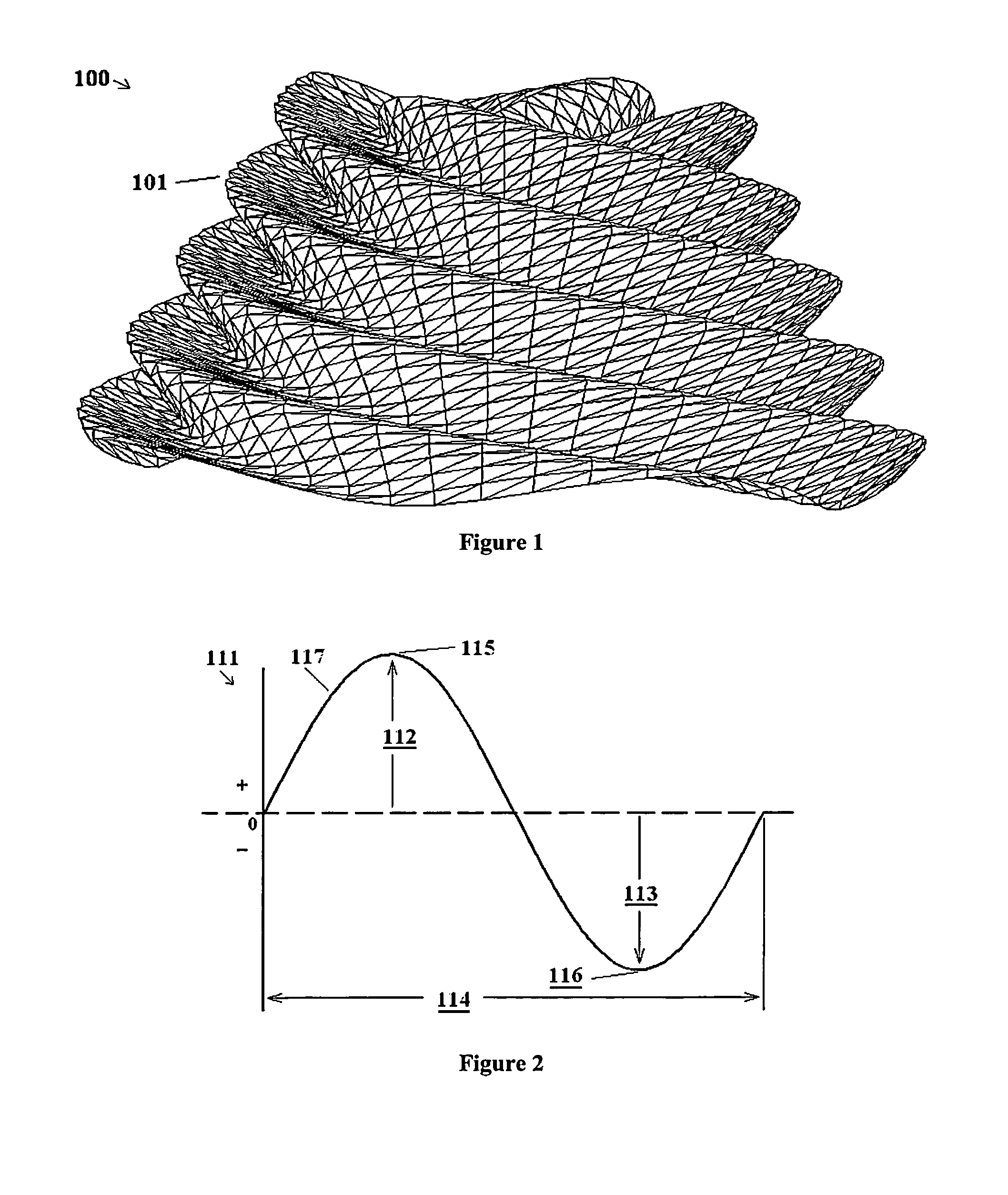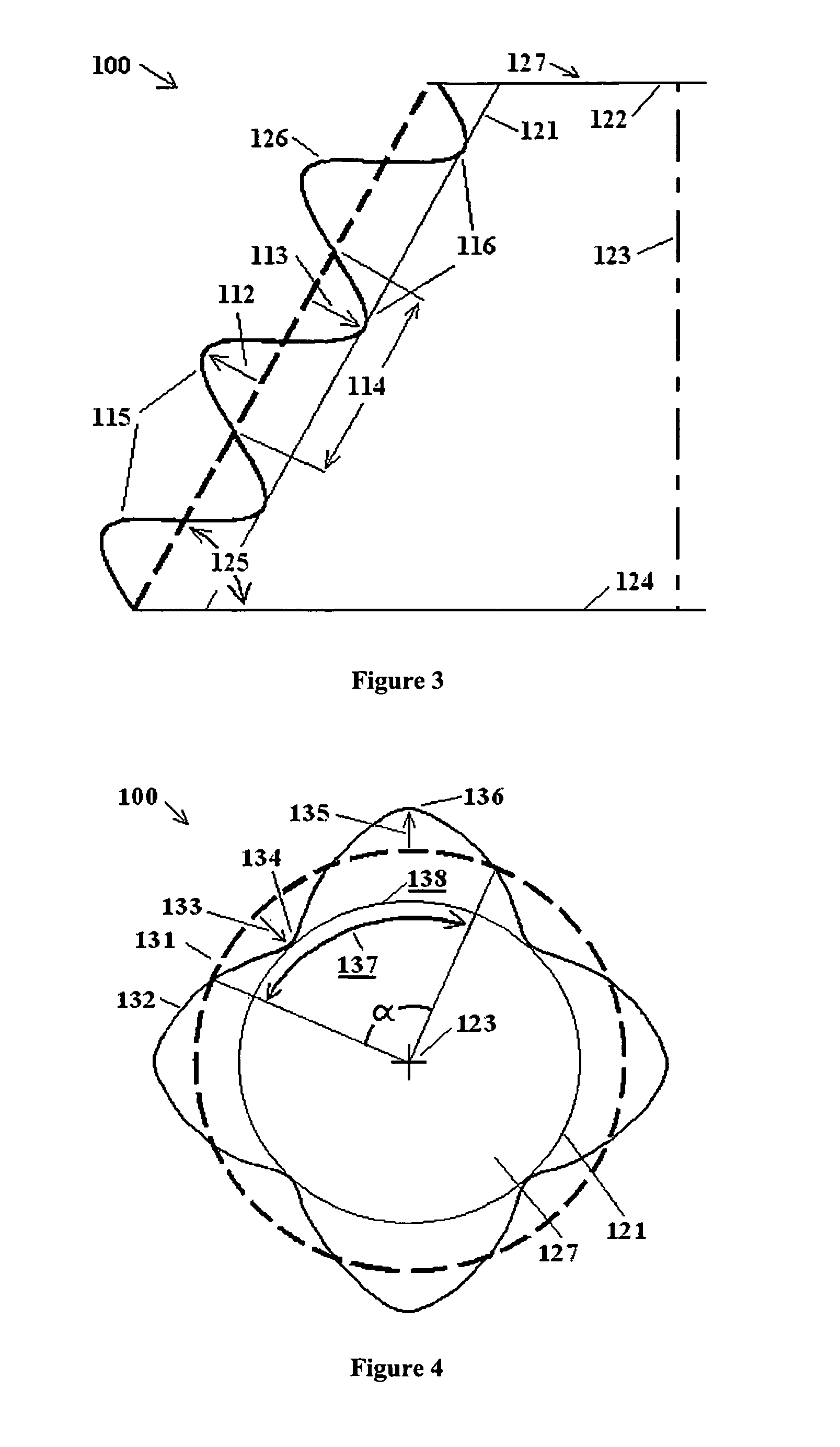Threaded fastener and fastener system
a technology of threaded fasteners and fasteners, which is applied in the direction of threaded fasteners, screw threaded joints, screw threaded fasteners, etc., can solve the problems of less efficient transmission of torque into thread tension, inconvenient in certain applications, and coarse threads are more resistant to stripping, so as to reduce the frequency of required maintenance, reduce noise, and enhance mixing characteristics
- Summary
- Abstract
- Description
- Claims
- Application Information
AI Technical Summary
Benefits of technology
Problems solved by technology
Method used
Image
Examples
Embodiment Construction
[0099]There are two types of wave threads that may be formed on a threaded fastener. The first type is referred to as a “surface wave thread” and the second is referred to as an “axial wave thread”. A threaded fastener 100 having a surface wave thread is shown FIG. 1 and a threaded fastener 200 having an axial wave thread as shown in FIG. 6. These types of threads have certain key differences. However, as explained in detail below, each adheres to the same basic thread design rules that apply to all wave threads; that the wave thread is made up of a profile wave and a lateral wave, that the crests and roots of the profile wave are substantially aligned with the corresponding crests and roots of the lateral wave, and that the wave thread travels one profile thread width per each period arc traveled
[0100]The threaded fastener 100 of FIG. 1 is described below with reference to FIGS. 2-5. The basic concept of the wave thread starts with a sine wave graph 110 in FIG. 2. It has a wave 117...
PUM
 Login to View More
Login to View More Abstract
Description
Claims
Application Information
 Login to View More
Login to View More - R&D
- Intellectual Property
- Life Sciences
- Materials
- Tech Scout
- Unparalleled Data Quality
- Higher Quality Content
- 60% Fewer Hallucinations
Browse by: Latest US Patents, China's latest patents, Technical Efficacy Thesaurus, Application Domain, Technology Topic, Popular Technical Reports.
© 2025 PatSnap. All rights reserved.Legal|Privacy policy|Modern Slavery Act Transparency Statement|Sitemap|About US| Contact US: help@patsnap.com



